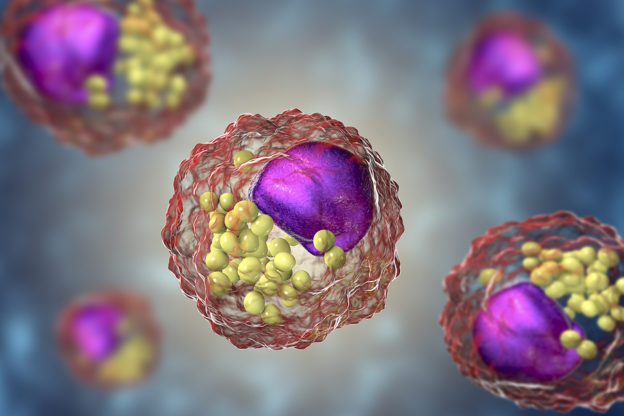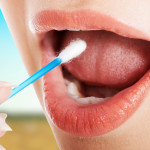By David Blyweiss, M.D., Advanced Natural Wellness
August 27, 2021
When it comes to cholesterol, mainstream medicine has it all wrong. LDL cholesterol isn’t the “bad guy”. In fact, it’s not even cholesterol. Neither is HDL.
People don’t get that.
You ask them what their cholesterol is and they say “Oh, my HDL is this or my LDL is that”. Those things are not cholesterol. They’re proteins – either low-density lipoproteins to carry cholesterol from the liver to peripheral arteries or high-density lipoproteins that carry cholesterol away from the arteries and back to the liver to be recycled.
And let me be clear on one thing. Your body makes 85% or so of the cholesterol from your liver. Because your body needs it!
It’s an antioxidant. It’s in your cell membranes. It protects you. It’s absolutely necessary to your existence. Your body uses it to produce sex hormones, maintain neurological function, make bile acids, produce cell membranes and support and preserve brain function.
If your LDL is too low, it has a horrible effect on your brain. It’s neurons and synapses can’t work right. This brings your brain activity – memory, learning, recall – to a screeching halt. That explains why statin drugs are associated with memory loss, forgetfulness, amnesia, memory impairment and confusion.
You can Thank Big Pharma for the LDL Hoax
Open your arteries, improve blood flow for a new health miracle...
Did you know your circulatory system has over 60,000 miles of arteries, veins and other blood vessels, if stretched end to end?
But as you age, your blood vessels undergo changes, which may cause them to stiffen, thicken and get clogged.
GOOD NEWS! Doctors have now identified a “Miracle Molecule” inside your arteries that helps OPEN your arteries and IMPROVE blood flow.
It’s what Dr. Valentin Fuster calls it, "One of the most important discoveries in the history of cardiovascular medicine."To you, that means...
- Healthy blood pressure
- Sharper mind and memory
- Skyrocketing energy and muscular strength
- Increased pleasure and passion in the bedroom
- Improved circulation to every cell and organ in your body
Go here to discover a new natural way to significantly boost the levels of this miracle molecule in YOUR body NOW!
I remember starting out in medicine 40 years ago. Back then, a cholesterol of 240 was considered normal. Then Big Pharma found they could lower it with drugs.
But I’ll tell you what. When they did studies on lab animals to see how well the first statin drug, Mevacor, would work, they shoved the cholesterol down those poor animals’ throats. And guess what? It didn’t raise their cholesterol.
So then they shoved in a lot of fat. That didn’t raise their cholesterol either.
What raised their cholesterol and triglycerides was dairy products and sugar. Then, instead of telling people what the study actually showed, they said “Hey! We’ve got a drug to lower cholesterol.” This is Fine
But having a high number of low-density lipoproteins or total cholesterol isn’t what’s causing heart attacks and strokes. It’s when the cholesterol within those lipoproteins gets inflamed and oxidized in your arteries that’s the issue.
When LDL particles become oxidized it makes them extremely inflammatory. This works against you by blocking arteries and restricting blood flow to your heart, brain and other organs.
It’s these conditions that place you at risk of cardiovascular disease, blockages, heart attack and stroke. It has nothing at all to do with your cholesterol count.
But here’s the thing. You’re not getting all of the information you need to protect your circulatory health. Routine cholesterol tests don’t check for oxidized LDL (oxLDL) or critically important LDL particle numbers (LDL-P) and particle size. For the best chance in improving your cardiovascular health, advanced lipid testing is vital and available from national labs like Labcorp and Quest. The larger the numbers of and the smaller the size of particles, the greater the risk of cardiovascular disease, heart attack and stroke. And LDL-P by itself is more foretelling of cardiovascular damage than particle size. That’s why I recommend testing for these which can give you a handle on how damaged your LDL particles are and how damaging they will be to you.
How to Lower Oxidized (Modified )Cholesterol
The World's Quickest Solution for Ending Prostate and Urinary Misery
This has recently been revealed to be one of the only real breakthroughs in prostate health.
The seeds of a strange fruit (sometimes called "Chinese Apples") hold powerful phytonutrients that are a revolution in prostate health.
In fact, UCLA and Veterans Administration research have now proved this to be true.
Not only that, but it may be the worlds quickest solution for ending prostate misery.
Simply stated, these phytonutrients represent a huge step beyond beta sitosterol, saw palmetto, and other phytosterols alone.
Simply click HERE if you want to have fast prostate relief...restful, uninterrupted sleep...no more constant "urges to go"...enhanced virility...and optimal prostate support for life.
If your oxLDL levels are high, it doesn’t take statins or other pharmaceuticals to bring them down. You can do it with just a few changes in your life.
Foods that are fried, processed or sugary all contribute to the development of damaged LDL cholesterol. So does dairy, smoking and excess alcohol consumption. So it’s a good idea to avoid them.
Eating more antioxidant-rich fruits and vegetables can help reverse some of the damage. In as little as two weeks a diet high in these plant-based foods can increase resistance to LDL oxidation up to 28%. I specifically like olives and extra virgin olive oil to help in improving modified LDL.
Add more healthy, omega-3 fish to your diet. Seafood can help protect against oxLDL. Eicosapentanoic acid (EPA), in particular, appears to prevent LDL oxidation and help clear oxLDL from the body. Choose wild-caught fish that are lower on the food chain like Pacific halibut, mackerel, Alaskan salmon, sardines, herring, rainbow trout and flounder. If you don’t like seafood try a high quality fish oil supplement.
I also like a supplement called resveratrol. It works to decrease oxidized LDL by about 20% within just a few months use. If you combine it with its highly potent cousin, pterostilbene, you might even be able to amplify your results. Take at least 50 mg of resveratrol and 25 mg of pterostilbene each day.
Lastly, Green Tea (or it’s extract EGCG) blocks modification/oxidation of the LDL cholesterol particle. So I try to drink three cups over my day.
If you have large numbers of smaller sized LDL particles, the best thing you can do on your own is to begin a low to no sugar and low refined carbohydrate diet with daily niacin and again, omega-3 fatty acids. Speak to your doctor on how much of each you should take.
Other heart-healthy habits, like regular physical activity, controlling your stress levels and getting at least seven hours of sleep each night can also help shield your LDL cholesterol from oxidation.
Remember, it’s not cholesterol itself that is dangerous. It’s large numbers of smaller sized LDL cholesterol particles that have been been oxidized that does the real damage. That’s what you want to focus on.
SOURCES:
Linton MRF et al. The role of lipids and lipoproteins in atherosclerosis. 2019 Jan 3. In: Endotext [Internet]. South Dartmouth (MA): MDText.com, Inc.; 2000-. Available from: https://www.ncbi.nlm.nih.gov/books/NBK343489/
Allaire J et al. LDL particle number and size and cardiovascular risk: anything new under the sun? Curr Opin Lipidol. 2017;28(3):261-266.
Rafieian-Kopaei M et al. Atherosclerosis: process, indicators, risk factors and new hopes. Int J Prev Med. 2014;5(8):927–946.
Noakes TD et al. Evidence that supports the prescription of low-carbohydrate high-fat diets: a narrative review. Br J Sports Med. 2017;51(2):133-139.
Hernáez Á et al. The Mediterranean Diet decreases LDL atherogenicity in high cardiovascular risk individuals: a randomized controlled trial. Mol Nutr Food Res. 2017;61(9).
Ostrowska J et al. The comparison of effect of catechins and green tea extract on oxidative modification of LDL in vitro. Adv Med Sci. 2006;51:298-303.
Schreurs BG. The effects of cholesterol on learning and memory. Neurosci Biobehav Rev. 2010;34(8):1366-1379.
Welsh JA, Sharma A, Abramson JL, Vaccarino V, Gillespie C, Vos MB. Caloric sweetener consumption and dyslipidemia among US adults. JAMA. 2010 Apr 21;303(15):1490-7.
Hininger I, Chopra M, Thurnham DI, Laporte F, Richard MJ, Favier A, Roussel AM. Effect of increased fruit and vegetable intake on the susceptibility of lipoprotein to oxidation in smokers. Eur J Clin Nutr. 1997 Sep;51(9):601-6.
Kiokias S, Proestos C, Oreopoulou V. Effect of Natural Food Antioxidants against LDL and DNA Oxidative Changes. Antioxidants (Basel). 2018;7(10):133.
Garrido-Sánchez L, García-Fuentes E, Rojo-Martínez G, Cardona F, Soriguer F, Tinahones FJ. Inverse relation between levels of anti-oxidized-LDL antibodies and eicosapentanoic acid (EPA). Br J Nutr. 2008 Sep;100(3):585-9.
Tomé-Carneiro J, Gonzálvez M, Larrosa M, García-Almagro FJ, Avilés-Plaza F, Parra S, Yáñez-Gascón MJ, Ruiz-Ros JA, García-Conesa MT, Tomás-Barberán FA, Espín JC. Consumption of a grape extract supplement containing resveratrol decreases oxidized LDL and ApoB in patients undergoing primary prevention of cardiovascular disease: a triple-blind, 6-month follow-up, placebo-controlled, randomized trial. Mol Nutr Food Res. 2012 May;56(5):810-21.







